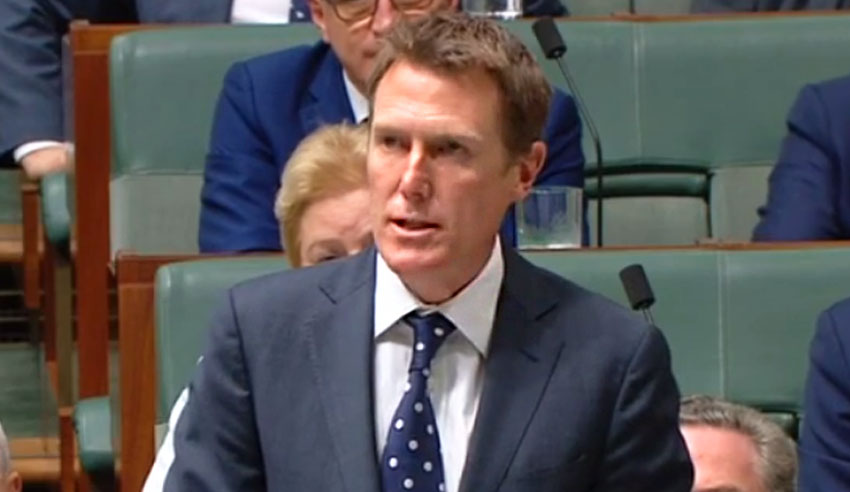The Commonwealth Integrity Commission legislation introduced by federal Attorney-General Christian Porter to ensure public service remains free from criminal corruption may not even cover ministers, retired judges have warned.

The Commonwealth government’s $147 million plan to develop and operate an integrity commission designed to “strengthen and complement” a multi-agency approach to anti-corruption within the public service could see ministers left exempt, cautioned the Australia Institute’s national integrity committee of retired judges.
“The Attorney-General’s draft bill for a Commonwealth Integrity Commission falls disastrously short of providing an effective body to counter corruption among public servants, ministers, parliamentarians and their staff,” said the Honourable Anthony Whealy QC, former judge of the NSW Supreme Court of Appeal.
“The government has fought for years against any proposal for a federal anti-corruption body. Now it has put forward a proposal essentially designed to protect themselves, and to shield the public sector from proper scrutiny.”
The retired judges said that a law enforcement official can be investigated for corruption, however a politician can only be investigated if there is a “reasonable suspicion” that a crime has been committed, “thereby preventing even the most preliminary investigation from occurring”. They are also concerned that there will be no public reports, hearings or findings against those in the public service.
Under the legislation, there will be no whistle-blower complaints against the public sector and a limited ability to launch investigations on the commission’s initiative.
“If this is not designed, then the Attorney-General ought to remove any doubt that ministers are exempted from scrutiny by the Integrity Commission,” Judge Whealy said. “The government’s Commonwealth Integrity Commission proceeds on a flawed assumption. The primary role of an anti-corruption agency is not to ensure convictions for criminal offences, nor is it task to gather evidence for prosecution.
“Its primary aim is to uncover serious corruption and to publicly expose it where that is appropriate and to this end, it is given wide and special coercive and investigatory powers. It is not bound by law of evidence and does not function as a judicial body.”
In announcing the commission, Christian Porter said it would hold politicians and staff “to the highest standards of honesty and accountability” and that the commission has been given the “most significant powers and resources” to detect and deter criminal activity and enhance the public sector’s long-term resilience.
“The impact of these shortcomings and misunderstandings is to make the Attorney-General’s proposal worthless,” the retired judges criticised.
“The community will rightly see this draft legislation as a sham, designed to protect parliamentarians and public servants from proper scrutiny. It will further reduce Australia’s standing as a country genuinely attempting to stamp out corrupt practices at the federal level.”
